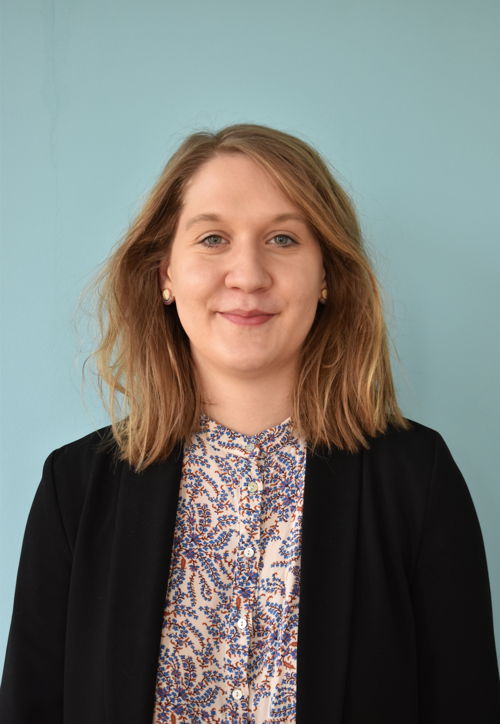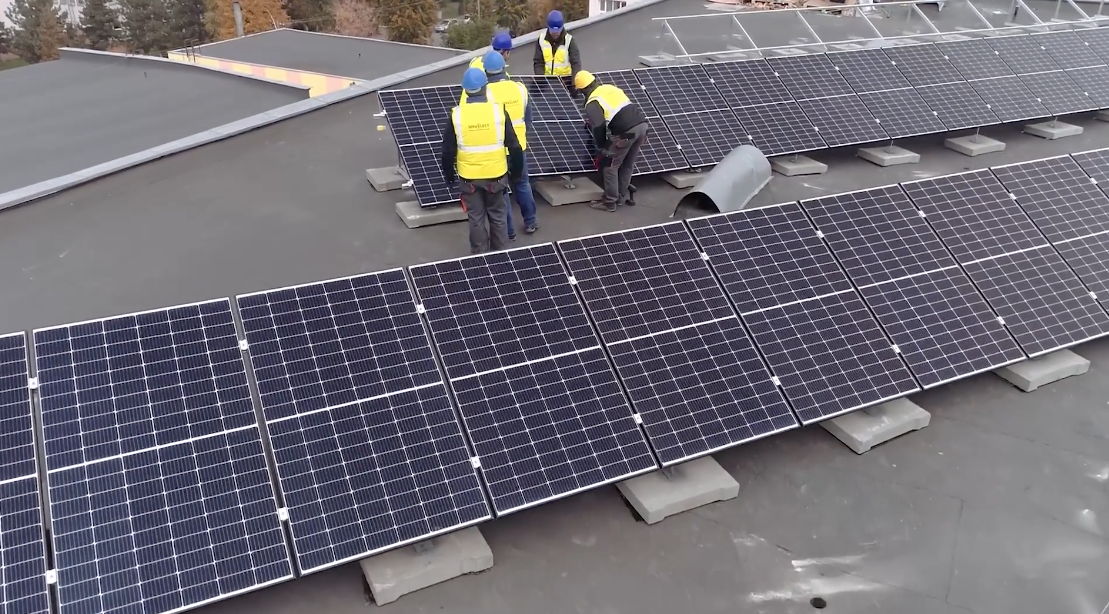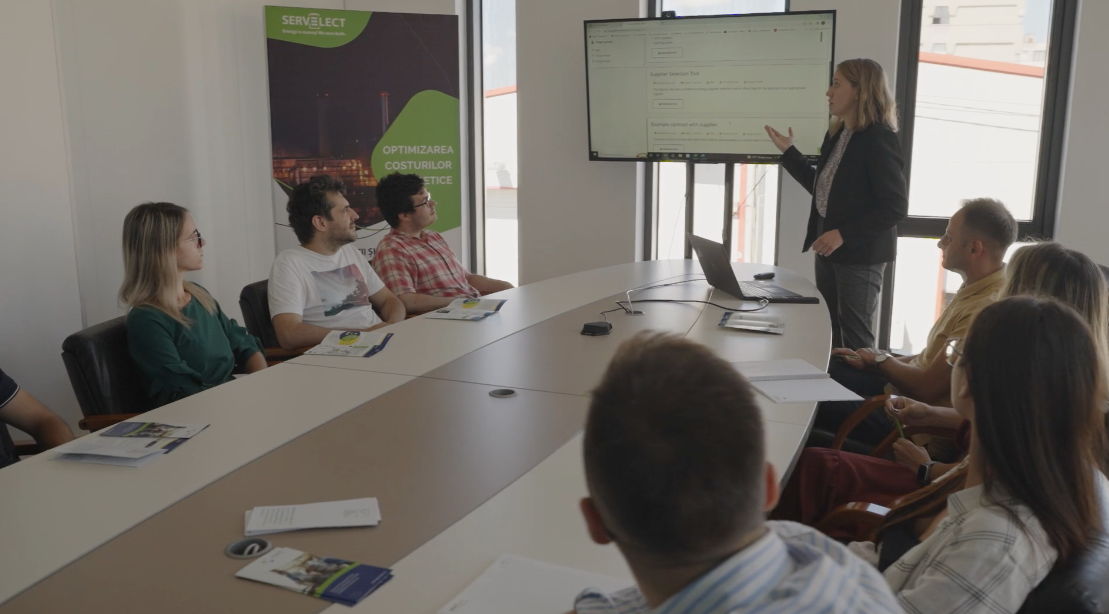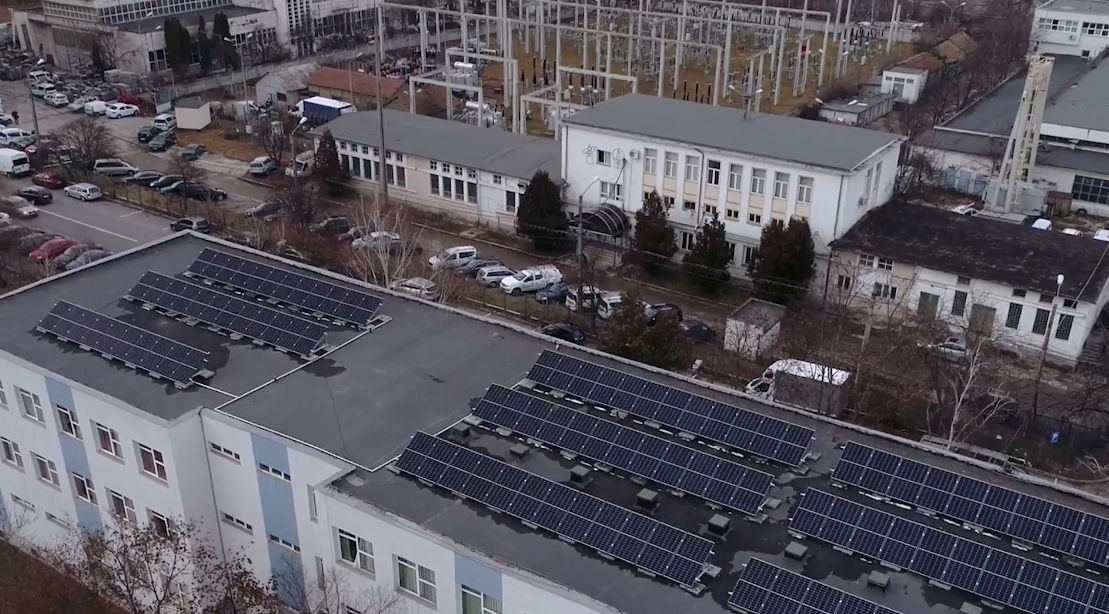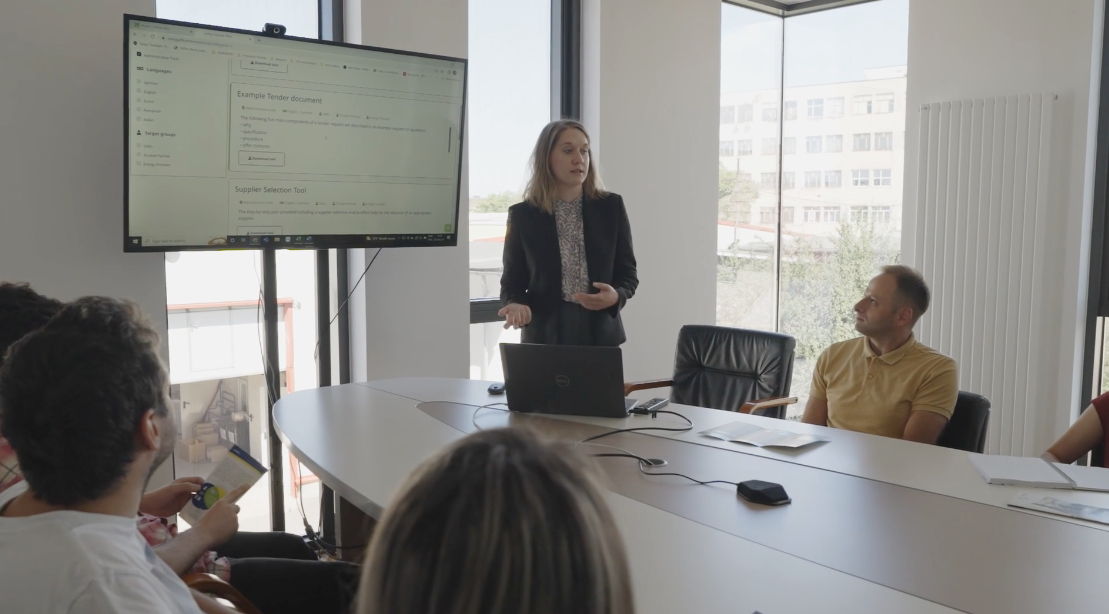Research engineer bringing energy efficiency to SMEs in Romania announced as a finalist in the European Sustainable Energy Awards
Timea Farkas, 26 year-old PhD candidate in electrical engineering, is developing replicable programmes to improve energy efficiency among small and medium-sized enterprises, which make up 99% of all businesses in Romania

Already in 16 Romanian SMEs, establishing energy efficiency action plans has led to combined total energy savings of 8 897 MWh/year, the equivalent of 1,7 wind turbines running for a year, showing a high energy saving potential in this sector. Through her engagement in two EU-funded projects, SMEmPower Efficiency and Gear@SME, Timea Farkas is helping SMEs to establish such plans as well as bringing a community of companies together to exchange best practices.
‘My aim is to meet the needs of individual SMEs by clustering them together, so that they can motivate each other in achieving short, medium and long-term climate ambitions,’ explains Timea. ‘I am encouraging companies to enhance their energy efficiency by conducting energy analyses in their facilities and training decision makers and employees. Using this approach, SMEs gain knowledge on the multiple benefits of implementing energy efficiency measures.’
Timea credits her passion for sustainability to her Erasmus year at Østfold University College in Norway, during her Bachelor studies as an electrical engineer. Through this experience she changed her trajectory to focus on renewable energy sources, starting her Master’s degree the following year in renewable energy technologies at the Technical University of Cluj-Napoca, where she is currently completing a PhD. In addition to her academic pursuits, Timea is the local lead for both projects through the energy service company Servelect and she also serves as a junior researcher at the Energy Transition Research Center.
‘Timea is such an inspiring person for me and my colleagues because of her active involvement with each of the companies we are working with. Behind each company there are people. People, who change their minds, who start to act not only in the company but also at home,’ says her colleague Andrei Ceclan. ‘She also co-created the framework to establish energy efficiency action plans which can now be replicated with other SMEs.
Within the projects Timea provides technical assistance to the SMEs in their everyday energy efficiency efforts for both cost reduction and CO2 emissions reductions. But a lack of national best practices and experience threatens progress. Timea is responding to this by establishing energy collectives, through which networking paves the way towards energy efficiency and sustainability. ‘I believe that knowledge and awareness are the main fuels of the energy transition,’ adds Timea.
According to its National Energy and Climate Plan for 2021-2030, Romania is strongly committed to reducing the carbon intensity of industry by supporting green production processes and resource efficiency within SMEs. Not only in Romania, but across the entire EU, SMEs represent 99% of all businesses, making energy efficiency improvements within the sector crucial to meeting European energy and climate goals. Timea’s activities in the SMEmPower Efficiency and Gear@SME projects, which are funded under the EU’s Horizon 2020 programme, are delivering on the European Green Deal, and more urgently, supporting the REPowerEU Plan to accelerate the clean energy transition and increase Europe’s energy independence.
The incoming generation ushers in clean energy for Europe
Timea Farkas is one of three finalists shortlisted for the European Sustainable Energy Awards 2022 in the Young Energy Trailblazer category. The award recognises people under the age of 35 carrying out outstanding activities that advance the clean energy transition in Europe and inspire ambitious climate and energy action. The other finalists in the Young Energy Trailblazer category are Carla Silva Gonçalves and Marie Jeanmougin.
Carla Silva Gonçalves, a 30-year-old from Portugal, is using her maths skills to advance the energy transition. Marie Jeanmougin is a 30-year-old engineer establishing a blueprint for high-impact energy-efficient building renovations in France.
European Sustainable Energy Awards honour changemakers taking bold action on energy and climate goals
The European Sustainable Energy Awards recognise outstanding individuals and projects for their innovation and efforts in energy efficiency and renewables. Prizes will be awarded in four categories: Innovation, Local Energy Action, Woman in Energy, and Young Energy Trailblazer. Finalists are chosen by a high-level jury from a shortlist of the year’s most successful projects and actions for clean, secure and efficient energy. The winners will be decided by an online public vote which is open now until 18 September.
EUSEW 2022
The European Sustainable Energy Week (EUSEW) takes place on 26 to 30 September 2022 under the theme ‘Going green and digital for Europe’s energy transition’. EUSEW will bring thousands of sustainable energy stakeholders together both in Brussels and online to discuss Europe’s energy independence ambitions and climate goals through the REPowerEU Plan’s measures of energy savings, diversification of energy supplies and an accelerated roll-out of renewables.
Registrations for onsite and online attendance are now open.
For interview requests with the EUSEW 2022 Award finalists or additional media information, please contact media@eusew.eu
